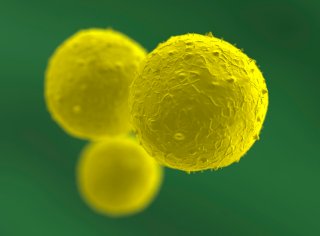
Stem cells provide a new therapy approach for the treatment of diseases which were difficult to handle or even untreatable up to now. There are restrictions for stem cell therapies in many countries because stem cell therapies are relatively new and the pharmaceutical industry is interested in patenting stem cell preparations in order to get them approved as drugs. We know which kind of stem cell therapy is most promising for your individual medical problem and which doctor is competently performing this therapy in which country.
Treatable Diseases
All Treatable Diseases
- Adrenal Fatigue
- Alzheimer’s Disease
- Amyotrophic Lateral Sclerosis (ALS)
- Arteriosclerosis
- Asthma
- Breast Augmentation
- Crohn’s Disease
- Diabetes
- Empty Nose Syndrome (ENS)
- Erectile Dysfunction (ED)
- Eyelid Correction
- Facelift
- Fibromyalgia
- Hair Loss (Alopecia)
- In vitro Fertilization (IVF)
- Multiple Sclerosis (MS)
- Muscular Dystrophy
- Osteoarthritis and Arthritis
- Parkinson’s Disease
- Peripheral Neuropathy
- Rheumatism
- Scleroderma
- Ulcerative Colitis
- Wound Healing Disorder
Stem cell therapies are advanced, experimental procedures that have been used worldwide only recently. Therefore, the long-term studies and reliable documentation on success, risks, and side effects required for a recognized treatment method are not yet available for treatments with stem cells. This page is for information purposes only and is not to be understood as medical advice. No guarantees or promise of cure are given.
Stem cell therapies are regulated differently around the world. The respective relevant national legislation, which imposes certain requirements for the performance of experimental therapies, must be taken into account. Stem cell therapies are generally performed only in those countries where the specific type of treatment is permitted.
Types of Stem Cell Therapies
Stem cells are essential for the development, regeneration, and healing of our body. However, stem cells are not all the same. There are different types of stem cells which serve various purposes in the human body. They are more or less suitable to be used for different types of stem cell therapy.
In stem cell transplantation either the patient’s own (autologous) or donated stem cells can be administered for the treatment of various ailments.
Adult Stem Cells
Mesenchymal Stem Cells (MSC) have the ability to stimulate the regeneration of body tissue. This regenerative effect can help to restore tissue damaged or injured by disease or injuries. In addition, mesenchymal stem cells are able to protect body tissues by inhibiting inflammation and attenuating faulty autoimmune responses. Mesenchymal stem cells are also known to play an important role in the regeneration of blood vessels.
The mesenchymal stem cells can be obtained from fat tissue (Adipose-Derived Stem Cells, ADSC) as well as from bone marrow (Bone Marrow-Derived Stem Cells, BMSC). Stem cells from the patient’s own fat tissue are more easily accessible than those from the bone marrow. They can be extracted from a small portion of body fat, which is harvested by means of liposuction in local anesthesia. The stem cells are injected into the areas to be treated immediately after isolation.
Stem cells from body fat are used both in the treatment of inflammatory and degenerative diseases as well as in aesthetic medicine. They can be administered either directly into the affected organ or tissue or, depending on the underlying disease, also systemically. Due to the large number of stem cells in adipose tissue, reproduction in the laboratory can generally be dispensed with.
Hematopoietic Stem Cells (HSC) produce the different cells of our blood inside the body. They are used in the therapy of leukemia, for example. Stem cells from a donor are transplanted to the patient.
Other Sources for Stem Cells
Neonatal Stem Cells are obtained from the blood in the umbilical cord, which contains a large amount of blood stem cells. The surrounding tissue also contains mesenchymal stem cells.
Embryonic Stem Cells are even pluripotent. This means that they are the only type of stem cells to have the ability to form all cell types of our body. Since embryonic stem cells are obtained from embryos, they are currently not used for the treatment of humans in most countries. Alternatively, pluripotent stem cells can be produced from adult body cells. However, the huge potential of these Induced Pluripotent Stem Cells (iPS) also carries risks, which is why they are used in research only.


